Keeping CDC Staff Safe on Rwanda’s Roads
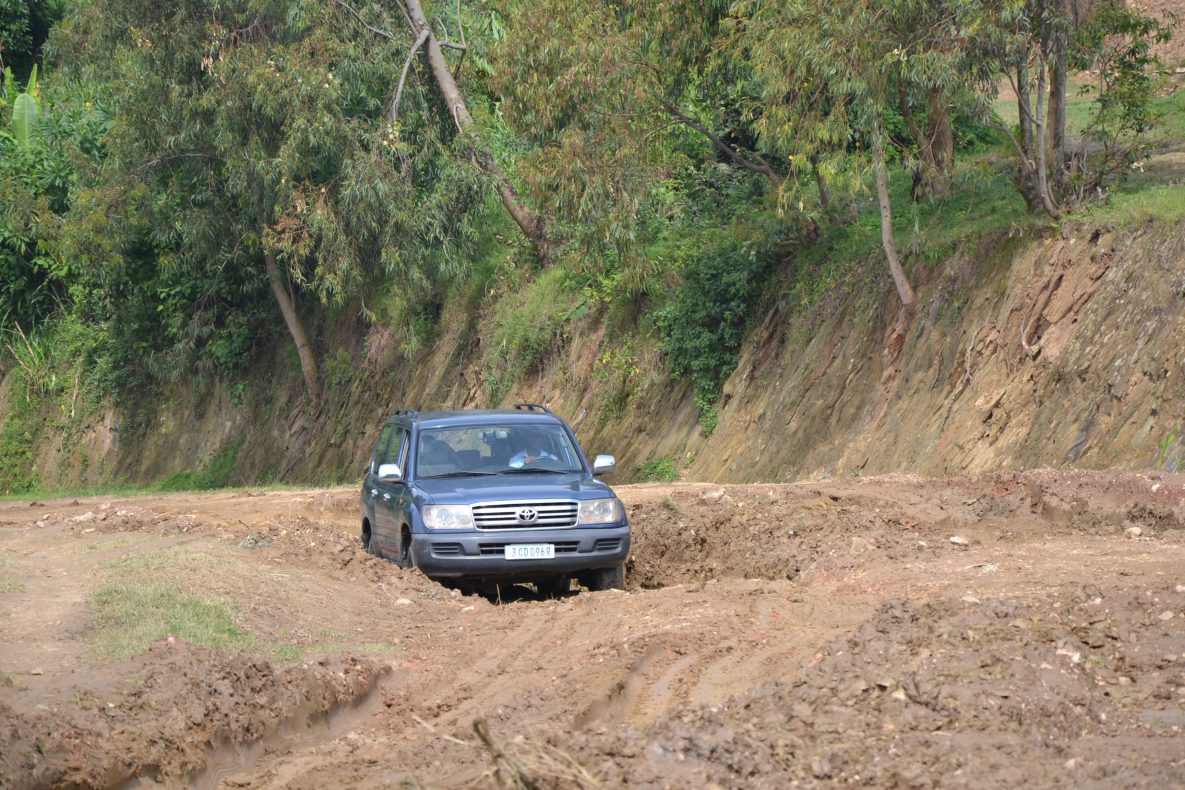
All photos courtesy of Dr Antoine Rwego formerly of CDC Rwanda, now with The Global Fund.
In the past six years, CDC Rwanda’s team of motor pool drivers has consistently ranked among one of the best performing motor pool teams in CDC worldwide.
The team of five drivers (Xavier, Norbert, Deo, John and Issa), one dispatcher (Sylla), one motor pool supervisor (Louis) and one administrative management specialist (Friederike) successfully integrates a customer-friendly approach to service delivery, with a no-nonsense emphasis on safety first.
And they haven’t broken their promise of safety and timeliness.
Sylla says, “We have never failed to get to our destination.”
Getting staff where they need to be sounds basic – until you see some of the roads they have to navigate (see photos below).
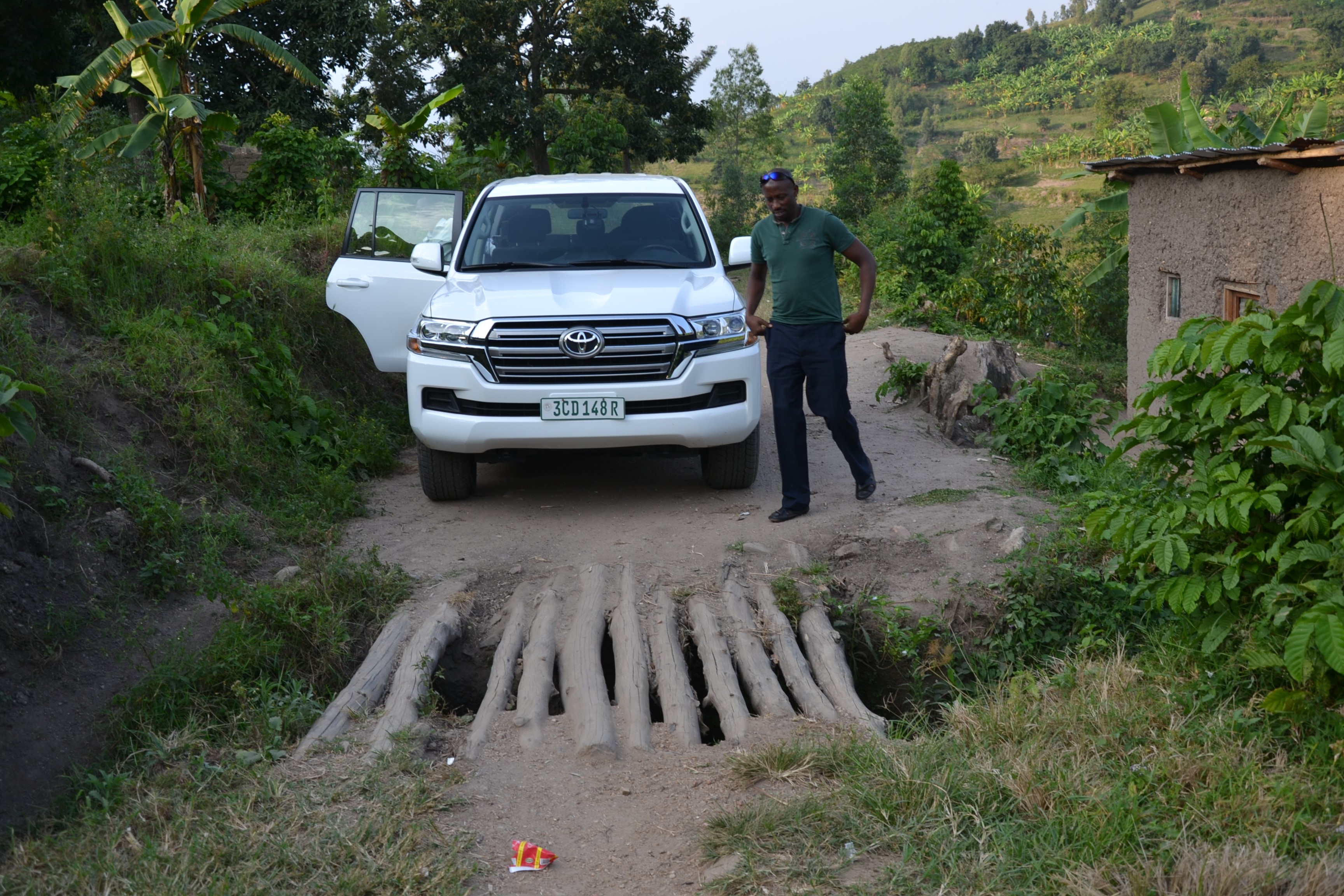
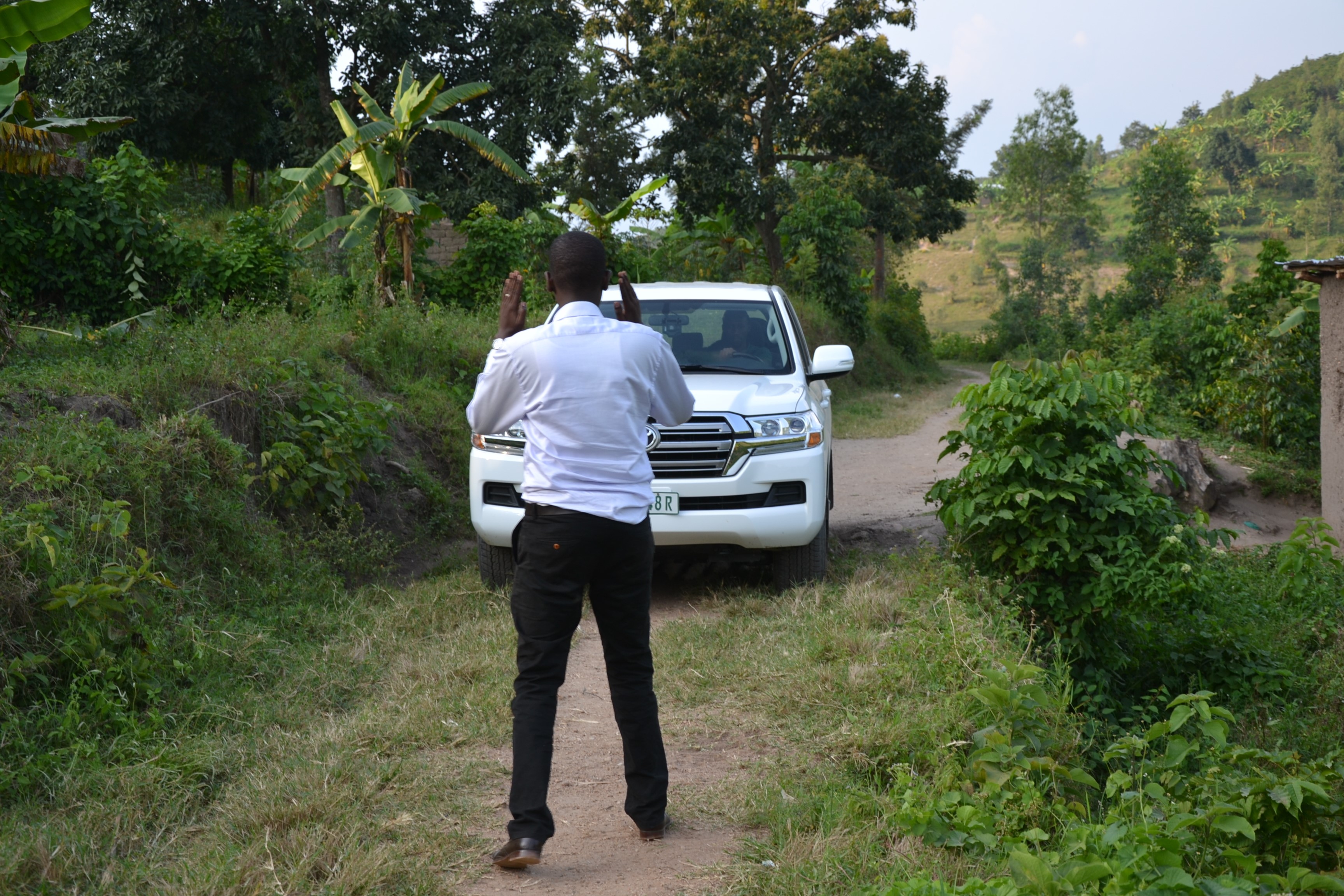
Much of CDC Rwanda’s work involves site visits to health centers in remote rural locations. This can be a challenge.
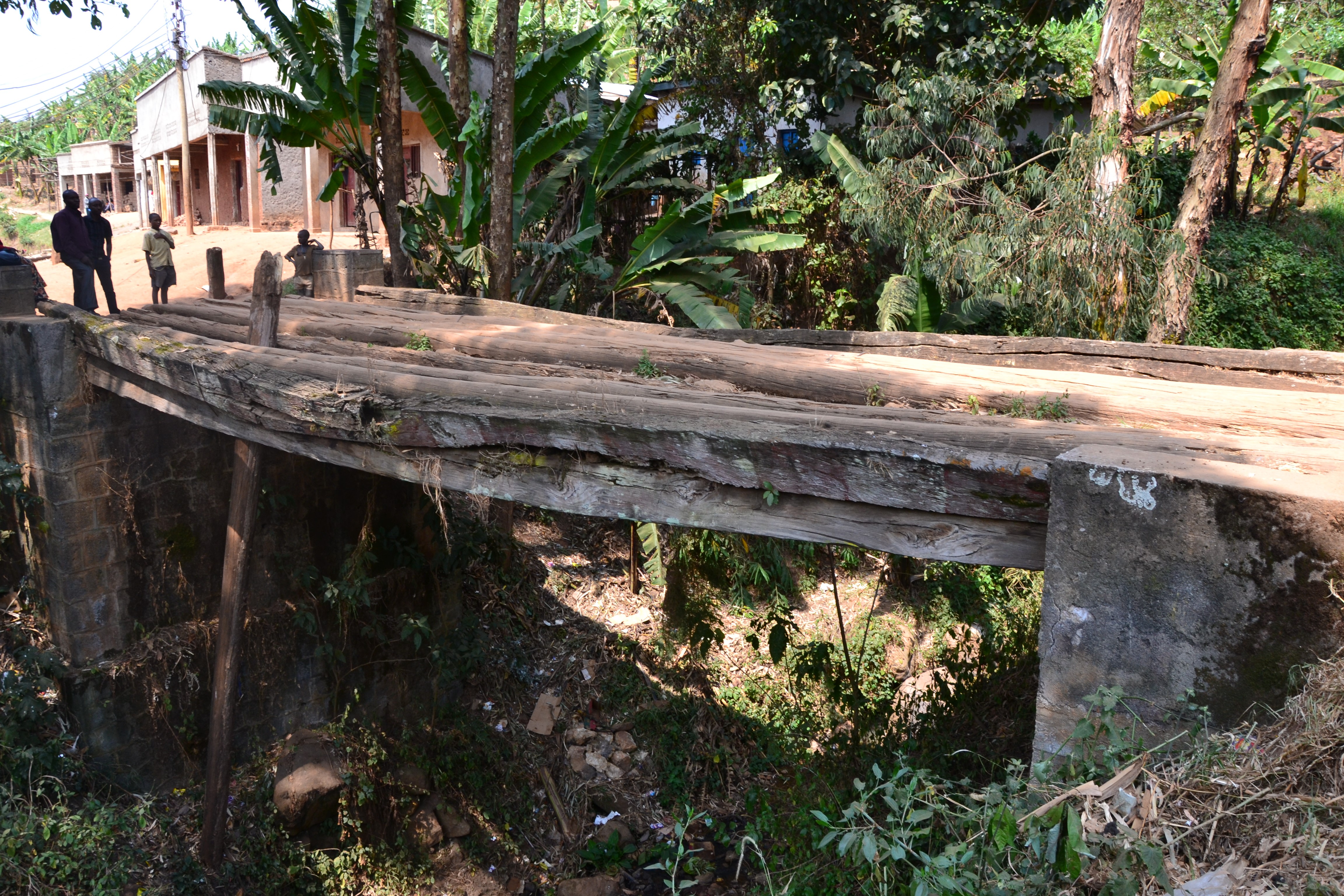
According to a 2007 WHO bulletin titled ‘Rwanda’s road-safety transformation,’ in 1996 Rwanda had one of the worst road-safety records in the world. Today with about 1,492 kilometers (927 miles) of paved roads and strictly enforced laws against speeding, drunk driving and poor vehicle maintenance; Rwanda’s road-safety record has vastly improved (source: WHO: Global Status Report on Road Safety-2015).
However, some roads, particularly in rural areas remain difficult to drive through.
These rural roads, coupled with steep winding inclines and descents along Rwandan’s pristine and often slippery hillsides, make driving in Rwanda a considerable challenge.
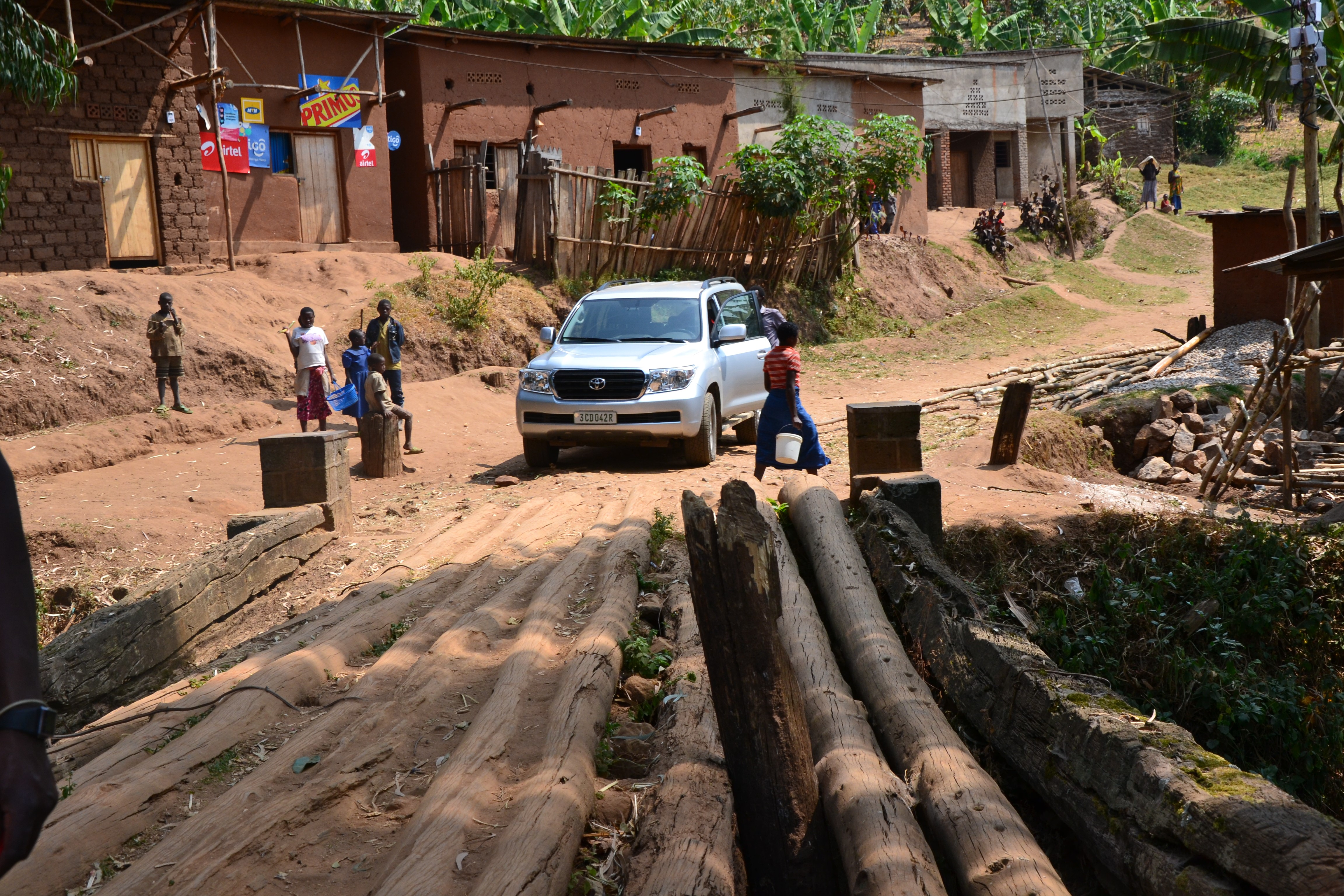
Louis de Monfort Ndikumana, CDC Rwanda’s motor pool supervisor says, “Although the training we receive is very useful, no training can fully prepare you for some of the kind of situations we find in the rural areas. At these times a driver has to rely on good judgment.”
Despite these challenges, since 2012 (when Drive Cam was introduced to CDC Rwanda) the CDC motor pool team has had consistently high safety scores.
The most significant statistic – five years of accident free driving. Other Drive Cam highlights include:
Drive Cam Highlights
- At most performance review quarters, CDC Rwanda does not have a single incidence on Drive Cam.
- CDC Rwanda is regularly ranked among the top three places (either 1, 2 or 3) out of all 13 Drive Cam Posts worldwide in safety.
Louis says, “It’s more than just about driving, it’s about safety. Our work is to keep both the drivers and passengers safe.”
Creating a culture of safe driving within CDC Rwanda is a major focus of the motor pool team. Friederike Swain, administrative management specialist, explains,
“Achieving great results is a team effort. The videos that we review together with the driver function as a mirror. One can have many years of experience and not be aware that one has adopted, over time, risky driving behaviors. Being able to identify what recurring behaviors are that could have a negative impact on road safety that we try to prevent to make Rwanda’s roads safer.”
A safe driving culture starts at the top of the organization. It is all about changing driving behaviors: working to increase the habits that keep staff safe on the roads while trying to reduce the habits that put staff at risk on the roads.
But it has not all been incident free. In 2007, one of CDC Rwanda’s motor pool drivers was involved in a serious accident. Although the driver was not at fault, the incident was still quite traumatic for both the driver and the motor pool team, and counseling was required.
This unfortunate incident serves as a reminder of the daily demands of the job.
Last year, CDC Rwanda’s team of drivers contributed to the country team’s Y16 targets by:
- Driving a total of 50,443km (31,344 miles) while taking CDC staff on field visits to health centers and projects in remote locations.
- Supporting CDC Rwanda’s SIMS team of 19 staff to visit 124 sites, with 240 overnight stays.
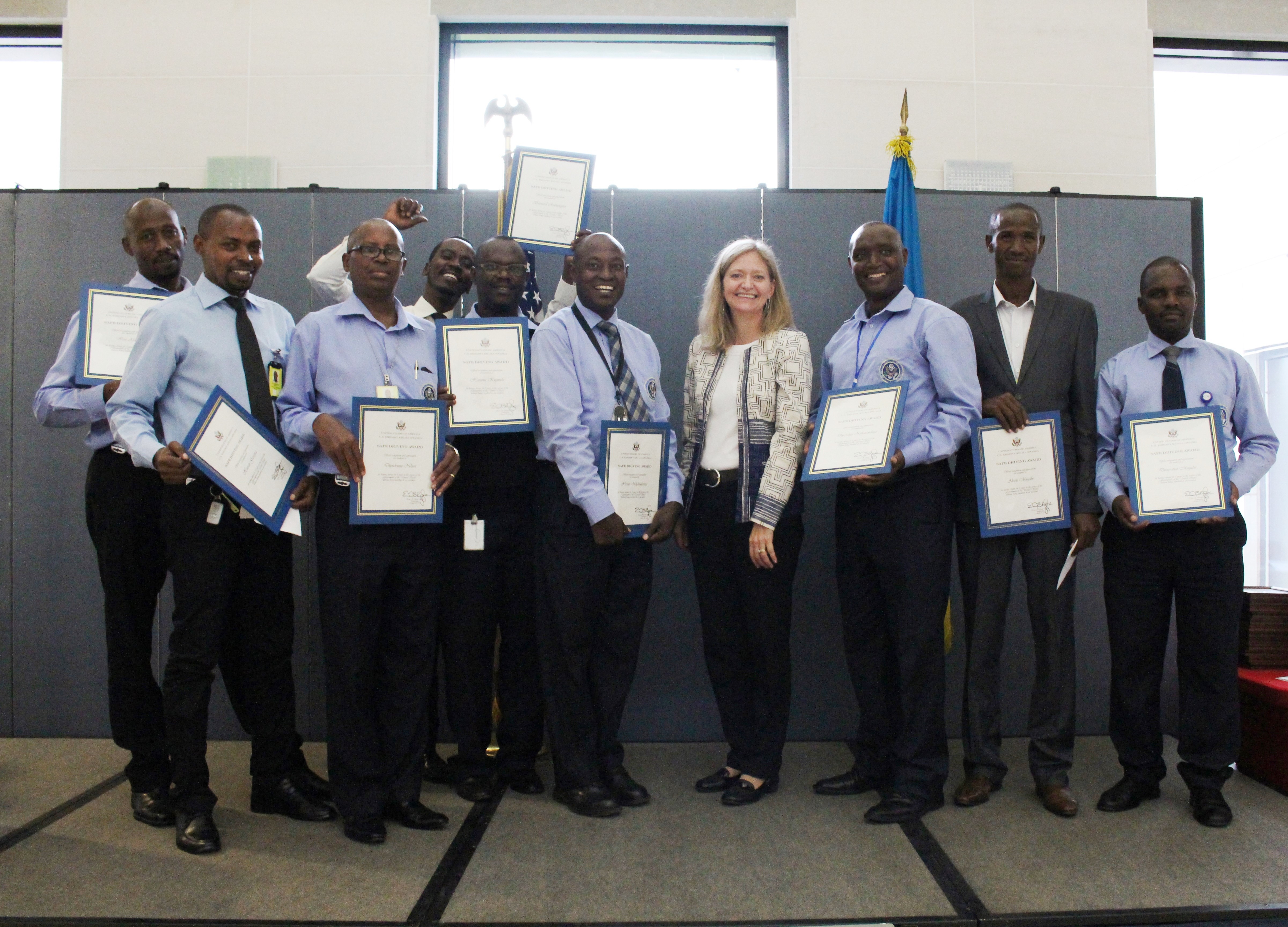
CDC Rwanda and state drivers pose for a photo with Amb. Barks-Ruggles during the Mission’s Spring Awards ceremony.
Each day CDC’s drivers are given charge over equipment worth tens of thousands of dollars and asked to take responsibility for the safety of their passengers and other road users. How are they able to do it?
John Kalisa says, “Most accidents happen because a driver is working under pressure. We don’t work under pressure. We are given enough time to prepare.”
Issa Afazari says, “Our goal is to keep staff safe on the roads.”
Norbert Ntitsimburwa says, “We try to maintain professionalism in our work.”
Deo Mugabo says, “Togetherness. We have good team spirit.”
Xavier Ntidendereza says, “Our role is to ensure safety. If we don’t drive safely CDC [Rwanda] will not reach its goal.”
Sylla Ibrahima says, “Working with CDC, frankly, I really love it. I am part of a team that helps to improve the health of Rwandan people.”
For their exemplary service, the CDC Rwanda motor pool staff have received numerous Mission Awards over the years. Recently U.S. Ambassador to Rwanda, Ambassador Barks-Ruggles, awarded members of the CDC motor pool team the Safe Driving Award.
This award is given to full time drivers who continuously demonstrate outstanding safe driving ability, particularly within the following criteria:
- When driving a USG Mission motor vehicle is the primary duty of the candidate’s full-time job; and,
- After driving in the service of the USG Mission, for one or more years without a preventable accident; and,
- When performance of secondary assigned job duties is “Good” or better.
Today the CDC Rwanda Country Program is reaping the benefits of a motor pool team whose service behind the wheel at work contributes immensely to the achievement of the organization’s goals.